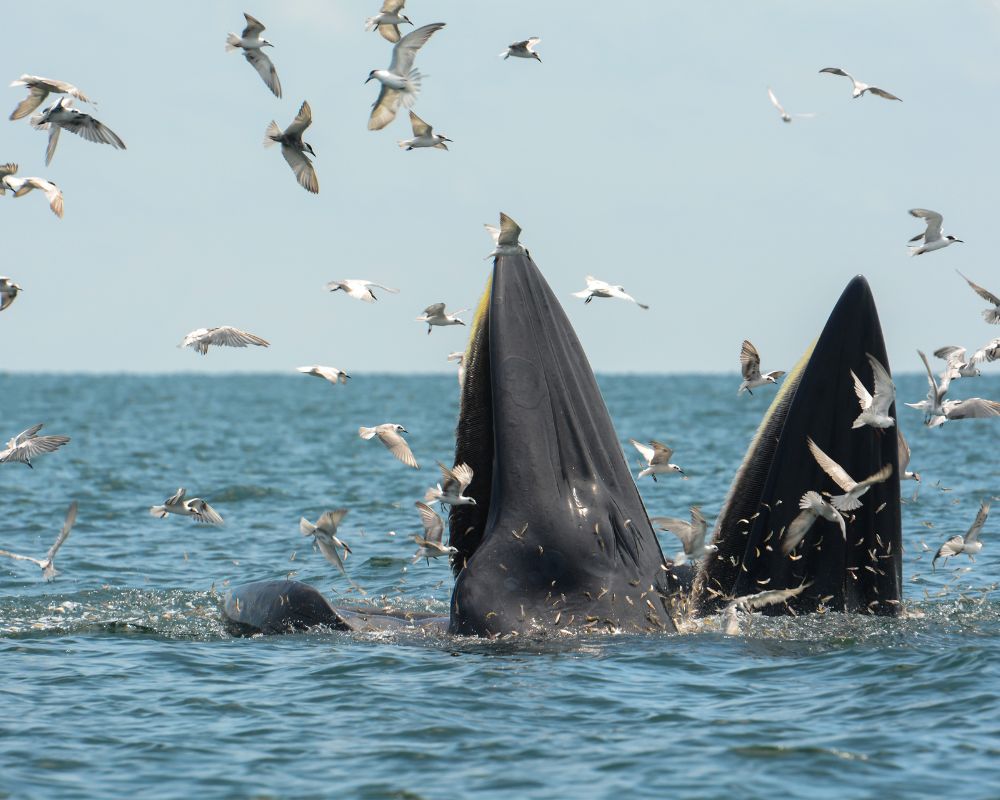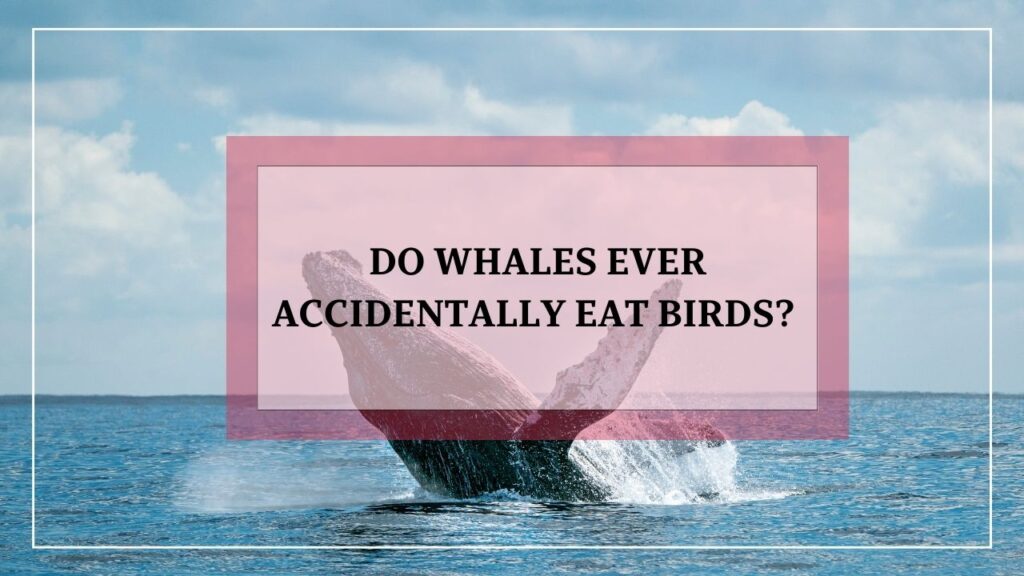Hey there, animal lovers! Have you ever gazed out at the ocean and wondered about the fascinating creatures that call it home? I know you have.
Today, I want to explore a question that might have crossed your mind at some point: do whales ever accidentally eat birds?
It’s a curious topic that has piqued the interest of many marine enthusiasts. As someone who has spent years studying marine life, I’m here to share my insights with you.
Now, before we dive into the details, let me assure you that the answer is not as straightforward as you might think. Whales are complex creatures with unique feeding habits and preferences.
But don’t worry, I’ll break it down for you and provide you with all the information you need to satisfy your curiosity. So, grab a cup of coffee, and let’s explore this intriguing question together!
Do whales ever accidentally eat birds?

While it’s technically possible for whales to accidentally eat birds, it’s not a common occurrence. Whales have evolved to consume specific types of prey, and their feeding mechanisms are designed to accommodate these smaller creatures. But as with anything in nature, there are always exceptions to the rule.
However, this answer was never enough for me, so we’re going to explore it together in this section.
Before we delve into the possibility of whales accidentally eating birds, let’s first talk about their feeding habits. Whales are classified as filter feeders, which means they consume large quantities of small prey, such as krill, plankton, and small fish.
Some species of whales, such as humpbacks, also engage in lunge feeding, where they gulp large quantities of water and prey into their mouths at once.
Whales have a diverse diet, with the specific types of prey they consume varying based on their species and location.
For example, baleen whales, such as blue whales and humpbacks, primarily feed on krill, while toothed whales, such as killer whales, primarily feed on fish and squid.
To understand the likelihood of whales accidentally consuming birds, it’s important to understand how they feed.
As filter feeders, whales use baleen plates in their mouths to strain water and small prey from the ocean. They then swallow their food whole, without chewing it.
So, back to the big question: do whales ever accidentally eat birds? While it’s technically possible, it’s highly unlikely.
Whales are specifically adapted to consume small prey, and their feeding mechanisms aren’t designed to process larger animals. Additionally, birds are typically able to fly out of the way of a whale’s feeding path.
Despite the unlikeliness of whales accidentally consuming birds, there have been some rare instances where it has happened.
For example, in 2011, a humpback whale was observed consuming a seagull in San Francisco Bay. However, these occurrences are few and far between and don’t indicate a widespread phenomenon.
Why do whales sometimes consume birds?
While it’s not common for whales to consume birds, there are some potential reasons why it might happen.
Birds play an important role in the marine environment, both as predators and prey. Seabirds, for example, feed on small fish and plankton, and their excrement can also serve as a source of nutrients for other marine life.[1]
Additionally, birds such as gulls and terns can act as indicators of the health of marine ecosystems, as changes in their populations may signal shifts in food availability or other environmental factors.
So why might whales occasionally consume birds, despite their typical diet of small prey? One possibility is that they mistake the bird for another type of prey.
Birds that dive into the water to catch fish, such as gannets and terns, may look similar to small fish or squid to a passing whale.
Another potential reason is that the bird may simply be in the wrong place at the wrong time, getting caught up in a whale’s feeding path.
While it’s not clear how often whales consume birds, there is some evidence to suggest that they may offer a nutritional benefit. In particular, the oily flesh of certain seabirds can provide a source of energy and nutrients to whales.
However, it’s important to note that birds are not a typical part of a whale’s diet, and consuming them in large quantities could potentially have negative impacts on whale health.
The Impact of bird consumption on Whales
While consuming birds may provide a nutritional benefit to whales, there are also potential negative impacts to consider.
One potential concern with consuming birds is the risk of ingesting plastic or other marine debris that may be attached to the bird. Whales are known to ingest plastic and other debris in the ocean, which can have negative impacts on their health.
Additionally, consuming birds that are contaminated with pollutants, such as heavy metals or pesticides, could also have negative effects on whale health.
The ingestion of marine debris can have a variety of negative impacts on whales, including digestive issues, blockages in the digestive tract, and toxic effects from ingesting chemicals associated with the debris. In some cases, the ingestion of debris can even lead to death.
The presence of marine debris in the ocean is largely the result of human activity, including improper disposal of plastic and other waste, as well as industrial activities that release pollutants into the environment.
Plastic waste is of particular concern, as it is persistent in the environment and can be ingested by a variety of marine life, including whales.

